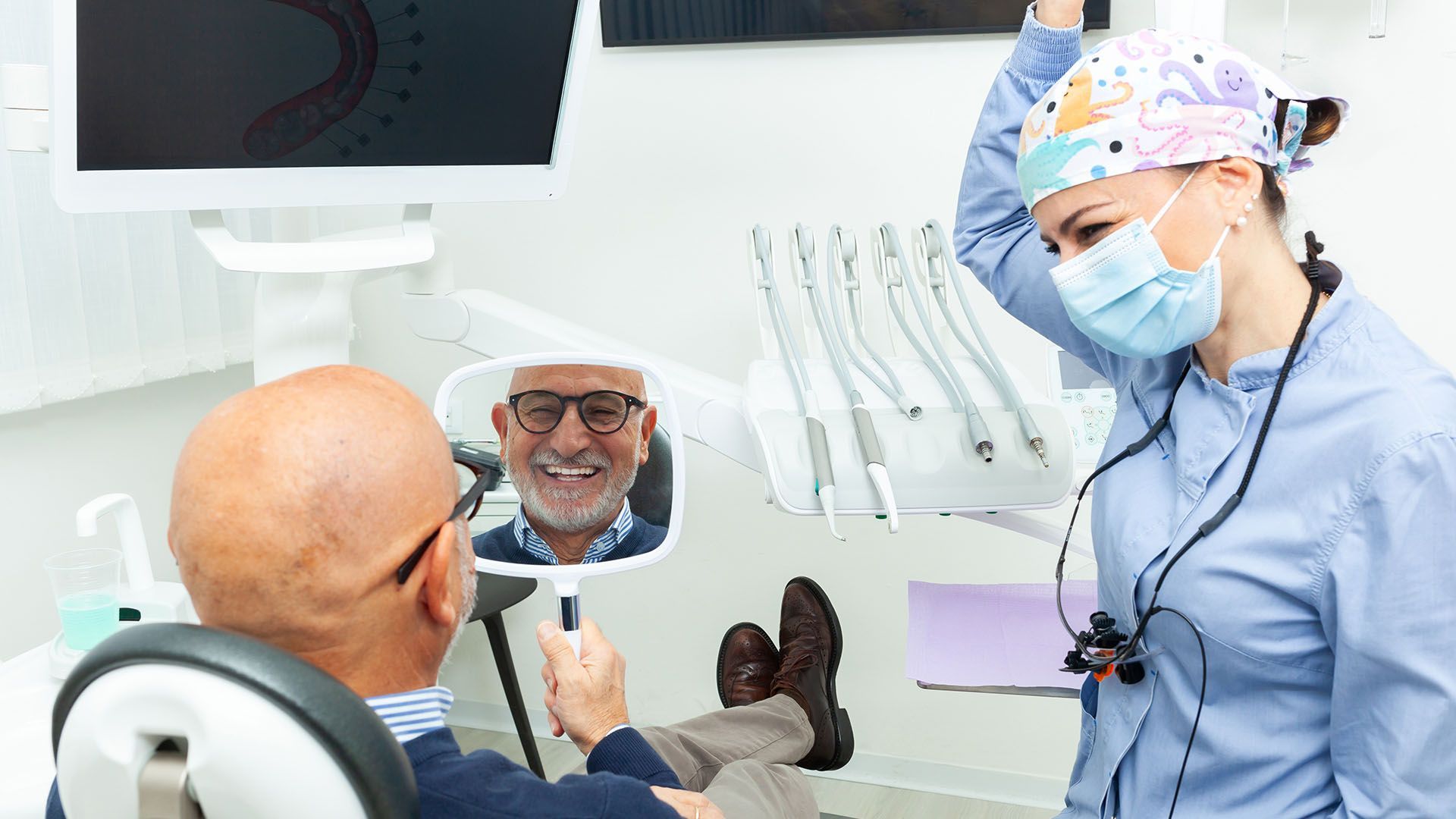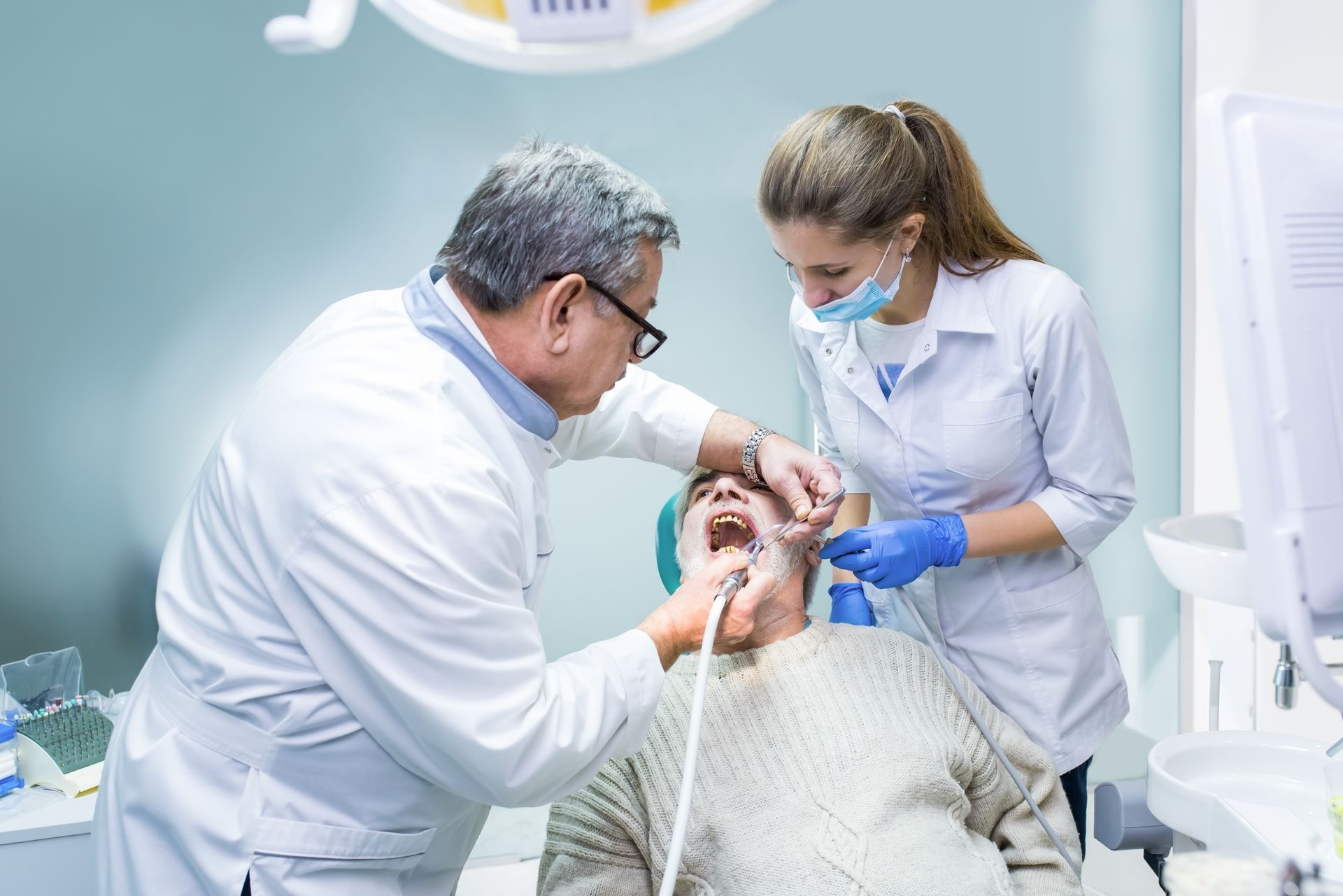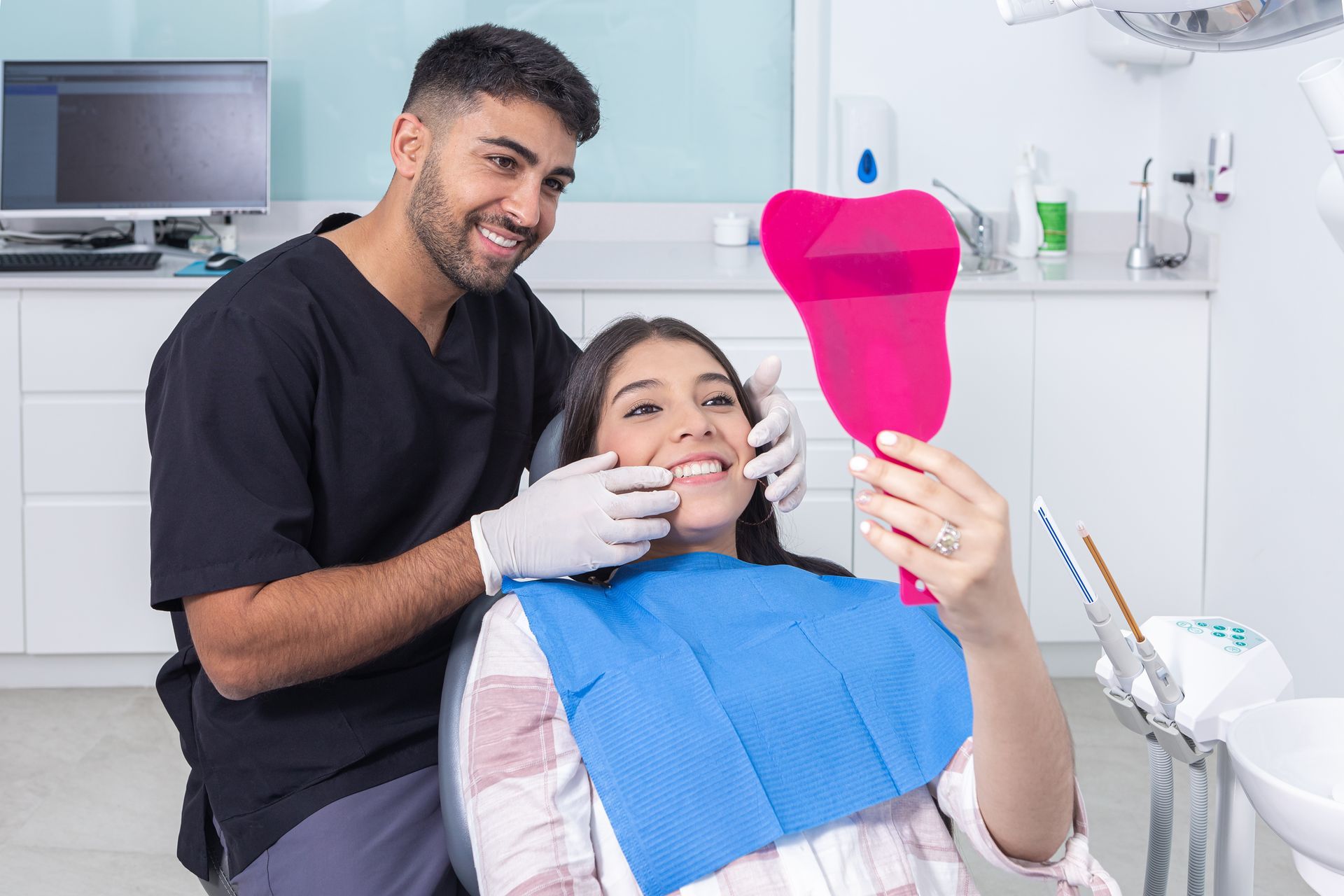Is It Safe to Drive After Getting Dental Implants?

Dental implant surgery is a highly effective solution for replacing missing teeth, but recovery involves more than just healing your mouth—it also affects your ability to safely drive. Whether you're planning ahead for your appointment or recovering post-procedure, it's important to understand how anesthesia, sedation, and post-operative care impact your ability to get behind the wheel.
Understanding the Effects of Sedation and Anesthesia
Dental implant procedures often involve local anesthesia, IV sedation, or general anesthesia, depending on the complexity of the treatment and your comfort level. Each type affects the body differently:
- Local anesthesia numbs only the surgical site, allowing most patients to remain awake and alert.
- IV sedation and general anesthesia have more significant effects on your alertness, coordination, and reaction time—making it unsafe to drive for several hours or even up to a full day.
Sedation can impair motor skills and slow response time, both of which are critical for driving. Even if you feel okay shortly after the procedure, the lingering effects of medication can be subtle but dangerous.
Can You Drive Yourself Home After Surgery?
The short answer is: No. If your dental implant surgery involves IV sedation or general anesthesia, you should not drive yourself home.
Most oral surgeons will require that you have a responsible adult accompany you and drive you home after the procedure. This isn’t just a precaution—it’s a standard of care designed to protect your safety and the safety of others on the road.
Even with local anesthesia, it’s best to arrange transportation, especially if you feel anxious or are prescribed medication that can impair judgment.
When Is It Safe to Drive Again?
Most patients are advised to wait at least 24 hours before resuming driving after undergoing sedation. This timeframe allows your body to fully recover from the sedative’s effects.
However, several factors can influence this recovery timeline:
- Type of anesthesia or sedation used
- Your age and overall health
- Post-operative medications like pain relievers or antibiotics
- Whether you experience drowsiness, dizziness, or nausea
If you're unsure, consult your oral surgeon before driving again.
Other Post-Operative Activity Restrictions
In addition to avoiding driving, your oral surgeon will likely recommend:
- Avoiding strenuous physical activity for 48–72 hours
- Eating soft foods to avoid disturbing the implant site
- Not smoking or drinking alcohol, as they can interfere with healing
- Sticking to your prescribed medications and monitoring any side effects
These restrictions are designed to help the surgical area heal properly while keeping you safe during recovery.
Signs You’re Ready to Drive Again
You may be ready to resume driving when:
- You feel
alert, clear-headed, and free of grogginess
- You are
no longer taking medications that impair coordination or judgment
- Your
oral surgeon clears you based on how your body is responding to recovery
Even then, listen to your body. If you feel weak, dizzy, or fatigued—don’t risk it.
Safety Tips for Returning to Normal Activities
When you do get back behind the wheel, start slow:
- Take short, local trips before attempting longer drives
- Avoid driving alone the first time, in case you feel unwell
- Pay attention to how your body reacts—especially to head movements, turns, or sudden stops
Every patient heals at their own pace, so don’t rush it.
Conclusion
Driving after dental implant surgery isn’t just about comfort—it’s about safety. Sedation and medication can impair your ability to drive safely, even if you feel “okay.” Plan ahead by arranging for transportation, and follow your oral surgeon’s post-operative instructions closely.
Call to Action
If you’re preparing for dental implants, contact West Valley Dental today to learn more about what to expect before and after surgery. Our team will help you plan for a smooth and safe recovery—including when it’s safe to drive again.

Frequently Asked Questions
How long after dental implant surgery can I drive?
Most patients should wait at least 24 hours after dental implant surgery before driving, especially if they received IV sedation or general anesthesia. Always follow your oral surgeon's instructions.
Do you need someone to drive you home after dental implants?
Yes. If sedation or anesthesia is used, you must have a responsible adult drive you home. It's not safe—or legally recommended—to drive yourself after surgery.
What are the restrictions after a tooth implant?
After a dental implant, avoid driving, heavy lifting, vigorous exercise, smoking, and drinking alcohol for the first 24–72 hours. Stick to soft foods and follow all post-op care instructions.
How long does dental implant surgery take?
The procedure typically takes 1 to 2 hours per implant, depending on the case complexity. This doesn’t include pre-surgery prep or recovery time at the office.
Can I drive myself home after oral surgery?
No. If your oral surgery involves any form of sedation, you cannot drive yourself home. Arrange a ride with a friend, family member, or a professional transportation service.








